Search Results
Showing results 1 to 20 of 36

A-Mazing Robot
Source Institutions
This activity lets you program your 'robot' (a willing friend) to pick up and dispose of some 'toxic waste' using as few commands as possible.
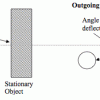
Where Will It Go?
Source Institutions
In this activity, learners predict where a ball will go after it bounces off another object. Learners discover that the motion of objects is predictable based on laws of motion.
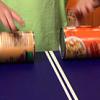
Soup Can Derby
Source Institutions
In this activity (on page 2 of PDF under GPS: Roller Coaster Design Activity), learners will use food cans of many different properties (sizes, shapes, and weights) and set two cans on their sides at
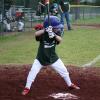
Batter Up!
Source Institutions
This activity (on page 3 of the PDF under GPS: Baseball Activity) is a full inquiry investigation into how "bounciness" relates to the distance a ball will fly when hit off a batting tee.
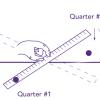
Free Fall
Source Institutions
In this quick activity (page 1 of PDF under SciGirls Activity: Hockey), learners will use a simple physics of motion and gravity demonstration to test their predicting skills.

Mystery Boxes for Grades 3-5
Source Institutions
Learners manipulate opaque, sealed boxes and attempt to determine their interior structures. Each box contains a moving ball and one or more fixed barriers.

Exploring Bouncing Balls
Source Institutions
Learners explore the physical properties of a variety of balls and how they bounce.

Mysterious M&M's
Source Institutions
Learners place an M&M candy in water and observe what happens. The sugar-and-color coating dissolves and spreads out in a circular pattern around the M&M.

Curious Crystals
Source Institutions
Learners carefully look at four known household crystals.
Caterpillar Measure
Source Institutions
In this activity, young learners use different-sized paper 'caterpillars' and various household items to predict and measure their height.
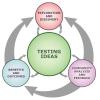
Number Patterns
Source Institutions
In this lesson, learners are challenged to discover the relationship among six numbers.

Catch a Wave: How Waves are Formed
Source Institutions
In this three-part activity, learners explore how waves are formed and why some waves are bigger than others. First, learners observe waves of water in a pan generated by an electric fan.

Sink or Float?
Source Institutions
In this water activity, learners test which objects float and which sink. Learners discover that objects behave differently in water.
Float or Sink?
Source Institutions
In this water activity, learners test which objects float and which sink. Learners discover that objects behave differently in water.

Counting Your Lucky Stars
Source Institutions
In this activity, learners sample a star field to estimate the number of stars in the universe.
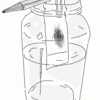
Show Your Colors!
Source Institutions
In this family or group activity, learners conduct a chromatography experiment to reveal the colors that leaves "hide" under their green pigments.

Sweet Speedway
Source Institutions
In this activity, learners test different food items by timing how long it takes each liquid to slide from the top of a ramp to the bottom.
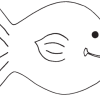
Generating and Recording Data
Source Institutions
In this math activity, learners use a "function machine" to collect and organize simple data. The function machine in this case is a cardboard box and the input/output data are paper fish.
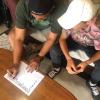
Guess the Sentence
Source Institutions
In this activity, learners play a game similar to Hangman by guessing a secret phrase to understand how computer scientists measure the amount of "information" in a document.
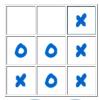
Tic-Tac-Toe
Source Institutions
In this online version of the classic paper and pencil game, learners practice looking ahead to anticipate an opponent's move.
